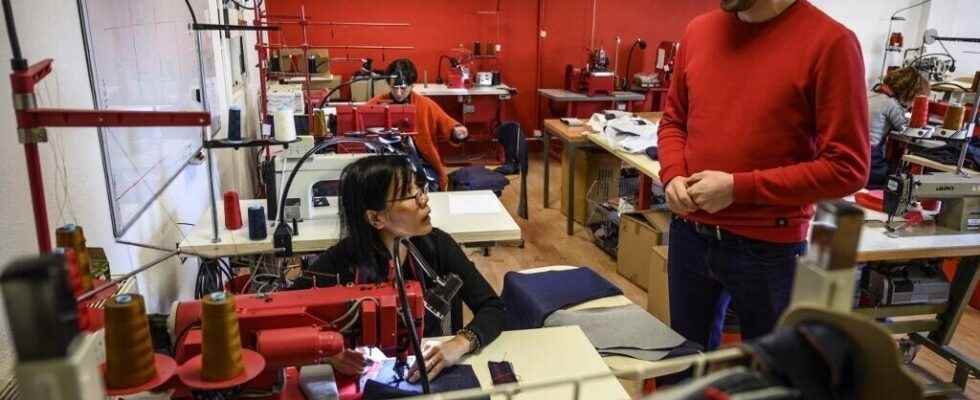The tenth edition of the Salon “Made In France” takes place until Sunday, November 13, in Paris. Some 900 exhibitors and thousands of 100% French items await visitors. The organizers are expecting a record 100,000 visitors for this tenth edition. Meet the entrepreneurs who have embarked on the adventure.
Driven by the successive economic crises of recent years and the necessary relocation of the French industrial sector, Made in France today goes beyond the simple marketing effect. The “Made In France” fair surfs on the concepts of “relocation” of jobs, and national “sovereignty”, two themes that have been at the heart of public debate since the health crisis.
►Also read: “Made in France” fair: relocation to deal with the crisis
From the Alsatian sock to the Ile-de-France trumpet manufacturer, the “Made in France” show offers a wide range of French know-how, with an ecological focus very present this year. cultivated is a new brand of cosmetics created with unsold products from organic farming.
” My little favorite is spinach for example. Spinach is quite divisive as a plant already, there are those who like it and those who hate it. You should know that it is very concentrated in chlorophyll pigments, which makes them super antioxidant shields “says Lauren Lachaud, co-founder of the brand.
French jeans
Relocating jobs to France is the successful bet of these brands and in particular of 1083, French jeans. ” I became interested in jeans because everyone wears them: young, old, Catholics, Muslims, rich, poor… And so, I said to myself “we are going to try to relocate the denim industry to France“, explains Thomas Huriez, founder of 1083. I started crowdfunding in 2013 on the Ulule website, I hoped to sell 100 jeans and we sold 1,000. The adventure started like that. It’s very virtuous, because for one pair of jeans purchased, we employ at least ten workshops.. »
250 jobs have been created, a selling point to which consumers are increasingly sensitive.
” The French are aware of the challenges of Made in France “
For Fabienne Delahaye, founder of the Made in France show, many French people have indeed become aware since the Covid-19 crisis of the importance of buying local.“ The French are really aware of the issues at stake with made in France, in terms of preserving jobs, know-how, in terms of the environment… And then incidentally, to reduce the abyssal trade deficit, which is explained well by too many imports compared to our exports “, she explains.
“I think there is also the realization that always buying ‘Made in Elsewhere’ costs us a lot, because we think we’re paying for a cheap t-shirt, then we don’t keep our jobs. That is to say that the two million jobs lost in industry have not been found in service jobs. So, it’s allowances, it’s more payroll taxes, it’s more taxes, and in fact, in the end collectively, it costs us a lot more “, continues Fabienne Delahaye.
And to conclude: “Often, when we associate the Made in France, it is associated with the notion of high cost. But when we talk about German products, Made in Germanywe immediately think of “Deutsche Qualität”. We also need to talk in France about quality, that we sometimes stop putting a bullet in the foot, so there are a thousand reasons to buy made in France. »
